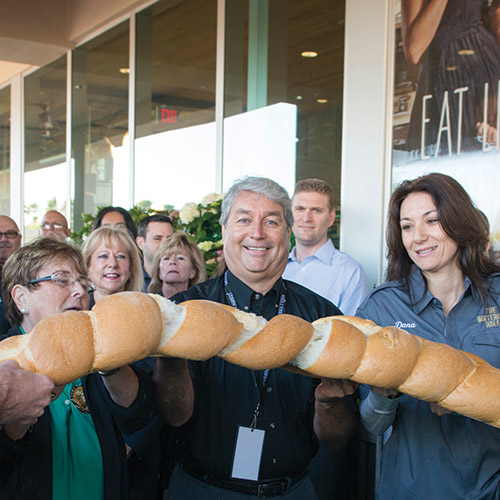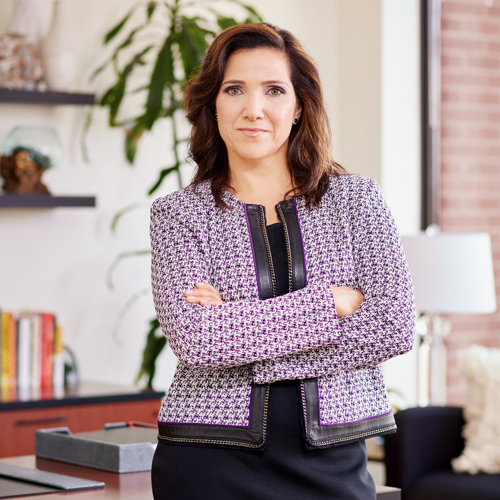When Horacio Federico “Fred” Mendez’s parents came to the United States from Argentina with just $100, they had every intention of one day returning home when conditions improved. Unfortunately, economic conditions in Argentina only got worse, and the family settled in San Jose, CA. His father got a job with IBM, and his mother taught piano to local kids.
Mendez’s impression was that his parents had no lofty goals for his future; as long as he did well in school and stayed out of jail, they would be happy. It was an overly ambitious Mendez, actually, who had big dreams of “eliminating third-world debt.”
Developing countries may still be grappling with their debt, but Mendez has done decidedly better than just “staying out of jail.” He serves as the managing director and national community outreach officer of New York-based Mitsubishi UFJ Financial Group (MUFG) Bank, one of the world’s leading financial groups with offices in over 40 countries.
Mendez’s path has been a dynamic one, with time spent in the capital markets at the policy level and stints as a market trader on Wall Street and as a community investment specialist with the Federal Reserve in San Francisco. He brings more than 20 years of corporate social responsibility experience to MUFG Union Bank, where his primary role is to implement the bank’s national community outreach strategy. He reaches out to the unbanked or under-banked, supporting people who have little to no relationship with financial institutions.
“I’m not just interested in meeting people where they are in their life. I want to know where they’ve been, where they want to go, and how we can help them get there.”
Mendez joined MUFG Union Bank in early 2015, filling a newly created position that resulted from the Tokyo-based parent company’s integration of its operations in the Americas.
“My primary goal is to eradicate barriers between the bank and people who have historically had no relationship with the bank,” he says. “I’m able to do this successfully because I work with amazing people. Really, the key to my success is to let smart people do the work they’re good at. I’m just here to block and tackle for them.”
The diversity of MUFG Bank as a whole, and specifically within Mendez’s team, serves his goals well. With a wide array of experiences, backgrounds, and entry points to finance, the community outreach team is able to come up with innovative solutions to complicated issues in drastically different communities.
The managing director is quick to point out that most people have a very specific idea of who is being discussed in conversations about those who have historically not been marketed to or engaged by financial institutions, asserting it’s not just low-income people of color. Interestingly, there are many people who are left out—affluent minorities perhaps the most surprising among them. Mendez says this group in particular has endless, untapped potential.
Recent surveys show that some immigrant groups in the United States have median household incomes that are above the national average. Early last year, Forbes.com reported that eight newcomers to the Forbes World Billionaires list were immigrants. Actually, fifty-one of the 492 billionaires in the US are people born outside of the US, having made their money primarily in tech, finance, and industry. So why aren’t many financial institutions working to attract affluent minorities?
“They don’t understand the value in it,” Mendez says. “For a long time in this industry we’ve tended to see all communities of color the same, irrespective of income, and attributing the same needs across the board. Even within low-income communities of color, we’re still operating under the assumption that the only way to serve the financial needs of these communities is to offer handouts, despite those same communities expressing different needs and despite history suggesting that approach isn’t actually helpful. We need to stop assuming we know better than the people who live in the communities we serve.”
This trend is exactly why “meeting people where they are” is a central tenet to Mendez’s work. He asserts this is the best way to build trust within communities. Creating meaningful, lasting, impactful relationships requires hard work, and Mendez says that work consists of learning who your potential clients are, where they originated, and what they think of your company—good or bad.
Transparency, according Mendez, is key. So is being honest, doing your homework, and being self-aware.
“I’m not just interested in meeting people where they are in their life,” he says. “I want to know where they’ve been, where they want to go, and how we can help them get there.”

